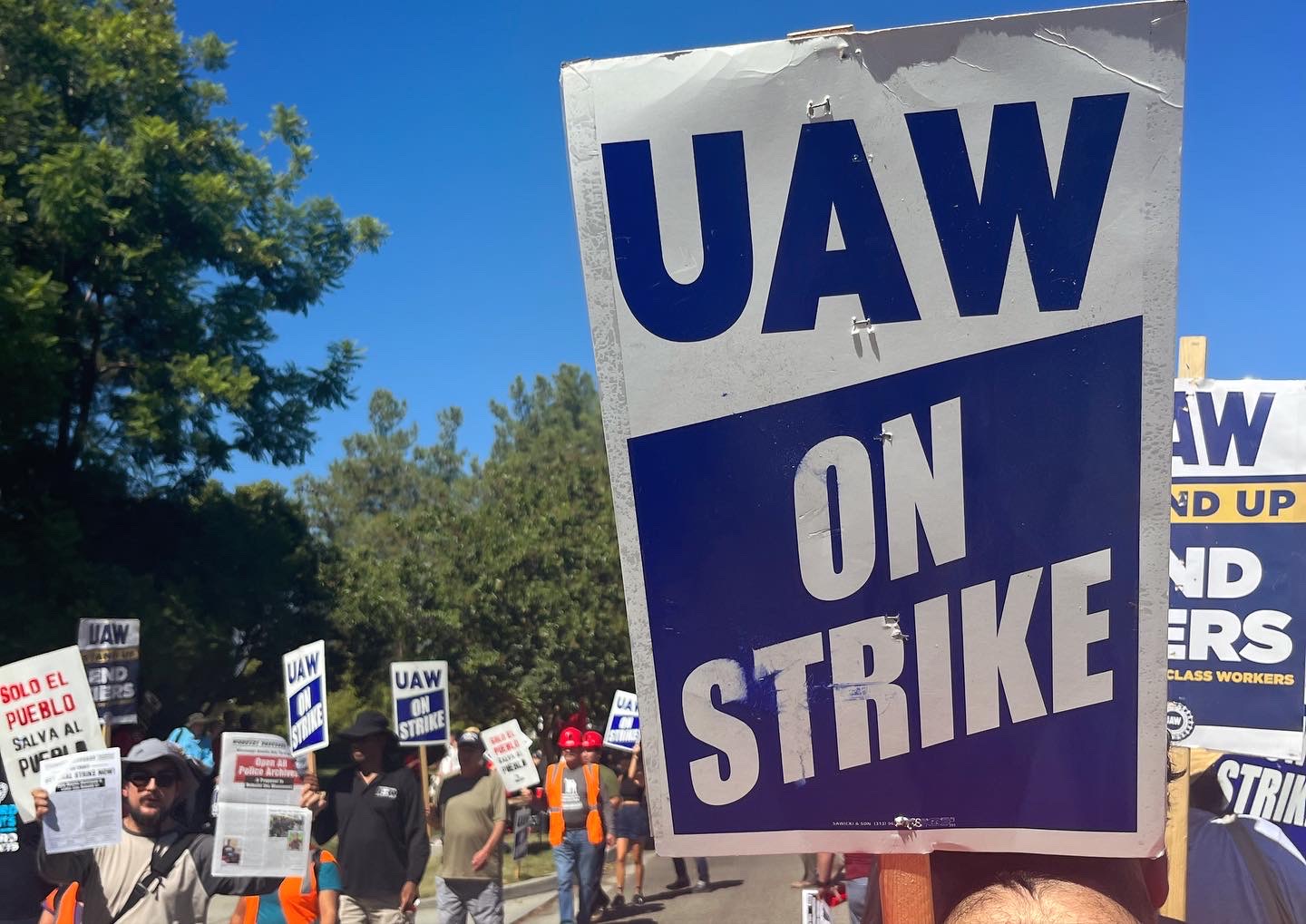
By: Sydney Ghazarian, LNS Organizer
Through bold strategy and collective action, United Auto Workers (UAW) have won historic gains in their 2023 contracts with the Big 3 Auto companies– gains that turned the tide against an unjust transition to electric vehicles and demonstrated that climate progress and economic justice can and must be won in tandem.
UAW’s ratified contracts with the Big 3 include:
- Provisions for expanding unionized EV work. The agreement with General Motors includes a commitment to future battery plants being included in the national agreement with UAW – meaning they will be good union jobs. Other contracts include guarantees for lower barriers to unionization at specific battery plants and commitments to the expansion of EV production already being done by unionized workers at existing plants.
- A 25% wage increase, including an 11% bump in the first year plus restoration of cost-of-living adjustments.
- An end to wage tiers that kept some employees at lower pay than others — a historic and important win for ensuring that EV work is both high-paying and union.
- An end to permanent ‘temporary’ employee status, with temps converting to full employment status after 9 months of work. This win will result in thousands of temporary employees who have spent years working at the company being able to reap the pay and benefits of employment status as soon as the contract is ratified.
- The right to strike over plant closures at all three automakers, which will provide the UAW critical leverage against the Big Three shipping jobs to anti-union states and overseas.
- Reopening the Belvidere Assembly Plant to manufacture EV batteries and serve as a parts depot — one of the only Big Three plants ever reopened after a closure
- The Stellantis agreement includes a moratorium on outsourcing, as well as product and investment commitments, giving workers significant leverage over corporate decision-making.
- Many critical provisions that provide protection for employees during transitions, such as allowing some employees to maintain their seniority from closed or idled plants, transfer rights, and increased moving allowance.
- Many significant investments in providing a safety net for workers during a transition, such as increased investment in retirement, tuition assistance, and a year of healthcare coverage following indefinite layoffs.
- The contract will expire on April 30, 2028 so that workers can strike on May 1st- International Workers Day. President Fain has called on other unions to align their contract expiration dates, as to maximize their collective power.
The UAW Solidarity Committee– which consists of climate and social movement organizations and is coordinated by the Labor Network for Sustainability– created a brief on the UAW strike outcomes to share with movement partners. You can read more here.